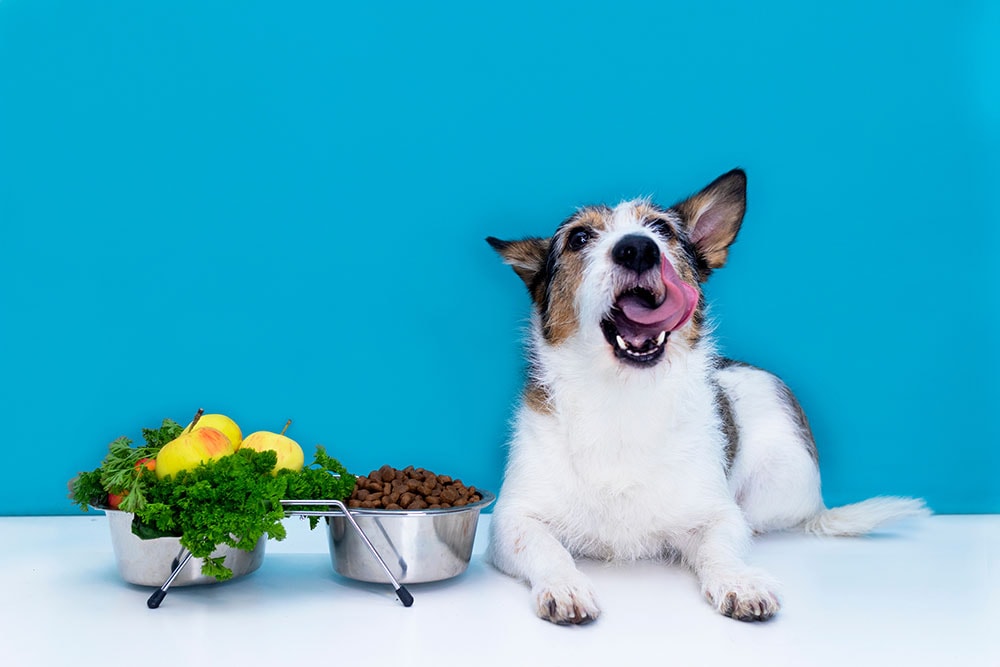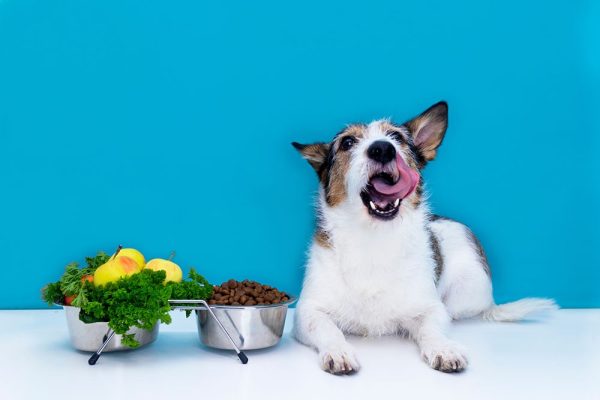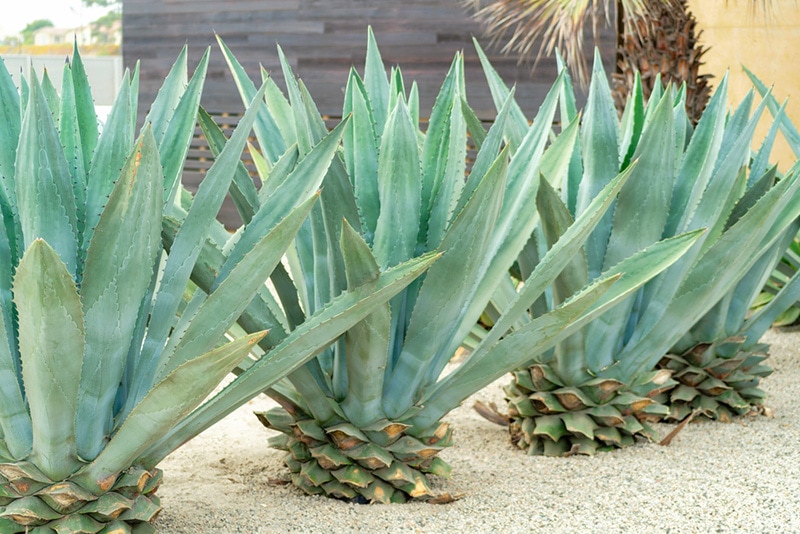Click to Skip Ahead
Responsible dog owners always want to make smarter, more ethical choices to improve their pet’s physical and mental well-being. With growing awareness around the eco-sustainability and health perks of vegetarian and vegan diets, it’s natural to wonder how a change in eating habits might help your dog. Thanks to growing consideration from experts and pet companies, dogs can now enjoy vegan diets, provided you are careful.
Making the switch for your dog isn’t as simple as it may be for you. Dogs have evolved to assume more of an omnivorous diet, but they’re still descended from carnivores. Although you might be excited to switch their food, a transition to a meat-free diet without proper planning can be risky at best and downright dangerous at worst.

Can Dogs Be Vegan?
Dogs are sometimes referred to as facultative carnivores, meaning they have evolved from being predominantly carnivorous to including a wider range of plant based foodstuffs in their diet. Their wolf ancestors already ate varying amounts of vegetation, and as domestication increased the dog’s reliance on humans, their gastrointestinal systems adapted even more, allowing them to process starch and more plant-based food sources.
Provided they aren’t toxic, dogs can digest vegan ingredients without much issue. But can a shift to a 100% meat-less diet provide the nutrition to drive a dog’s growth, maintain their body, and help them lead a long, fulfilling life?
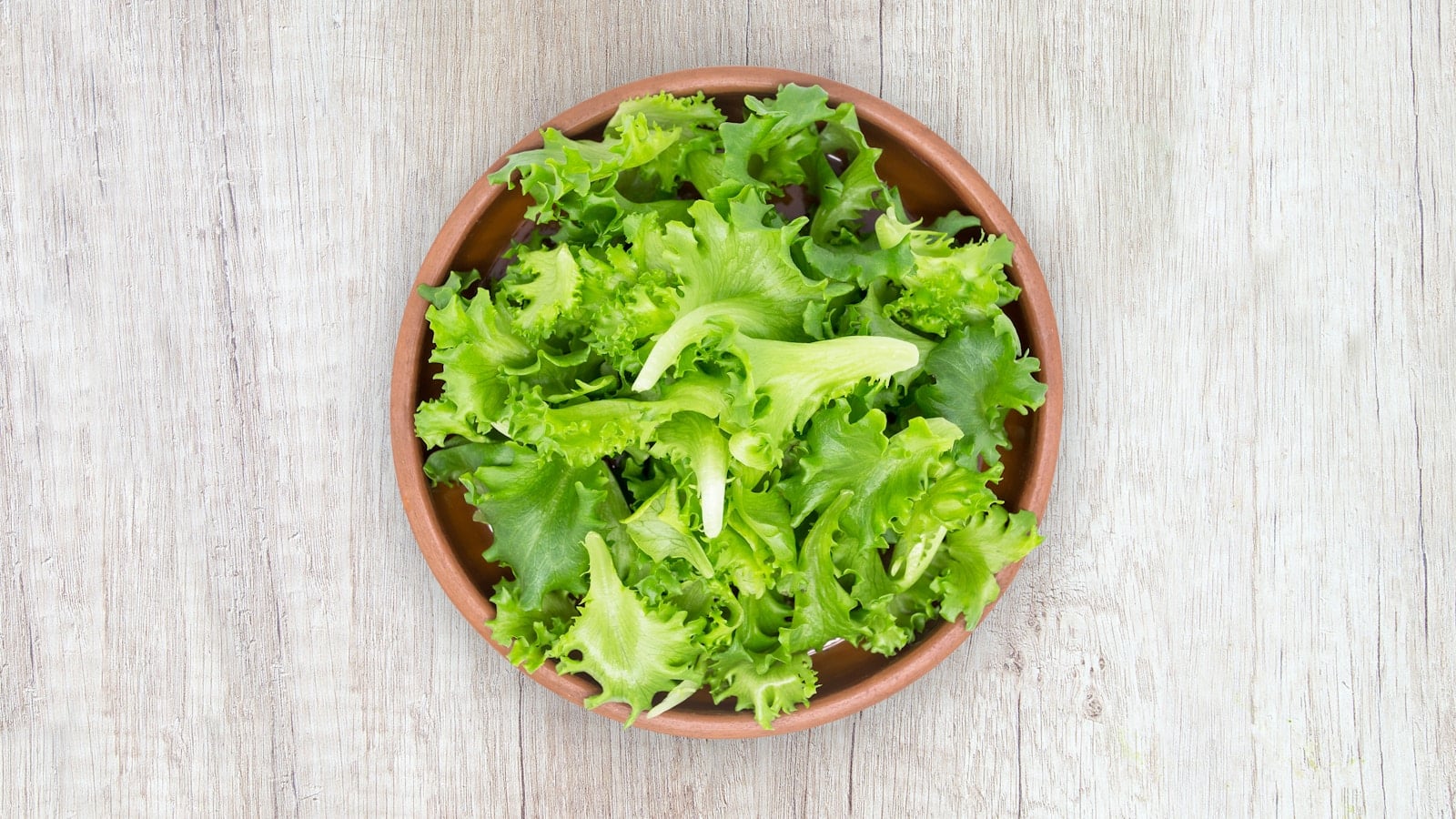
Challenges of Feeding a Vegan Diet
Unlike humans, who source a lot of their energy from carbohydrates, dogs primarily fuel their bodies through fats and proteins. The concern in eliminating meat is whether dogs will receive the crucial amino acids and vitamins abundant in animal tissues to assure their complete health.
- Proteins, such as arginine, leucine, methionine, and tryptophan
- Fatty acids, particularly DHA
- Vitamin A
- Vitamin B12
- Vitamin D
Creating a digestible, balanced vegan formula isn’t easy, but it is possible. As long as you get the nutritional requirements right, it doesn’t necessarily matter whether you use animal or plant-based ingredients. Complementary amino acids can fill the gaps for adequate total protein levels, algae can supply DHA, and synthetic supplements provide the vitamins dogs need to stay fit. When properly formulated, a vegan dog diet may actually deliver unique benefits over meat-based alternatives.
Effects of a Vegan Diet
Several studies have investigated the effects of a vegan diet on a dog’s body and owner’s perceptions of their dog’s health and behavior. Generally, vegan diets don’t have significantly different impacts than conventional or raw meat-based diets.
Dogs rarely show nutritional deficiencies or clinical signs related to an inadequate diet when fed a well-formulated vegan meal. Researchers found no issues in the rare instances where the values fell outside the reference ranges. For example, dogs fed vegan diets tend to have a higher (more alkaline) urine pH, but this doesn’t appear to cause adverse health effects.
For their part, owners predominantly see a vegan diet as a positive for their pets. Some suggested it may be less hazardous for the dog, and they reported fewer health disorders and annual vet trips than those feeding diets with meat.
Also, most owners claimed that the vegan diet is no less palatable than a meat-based alternative.
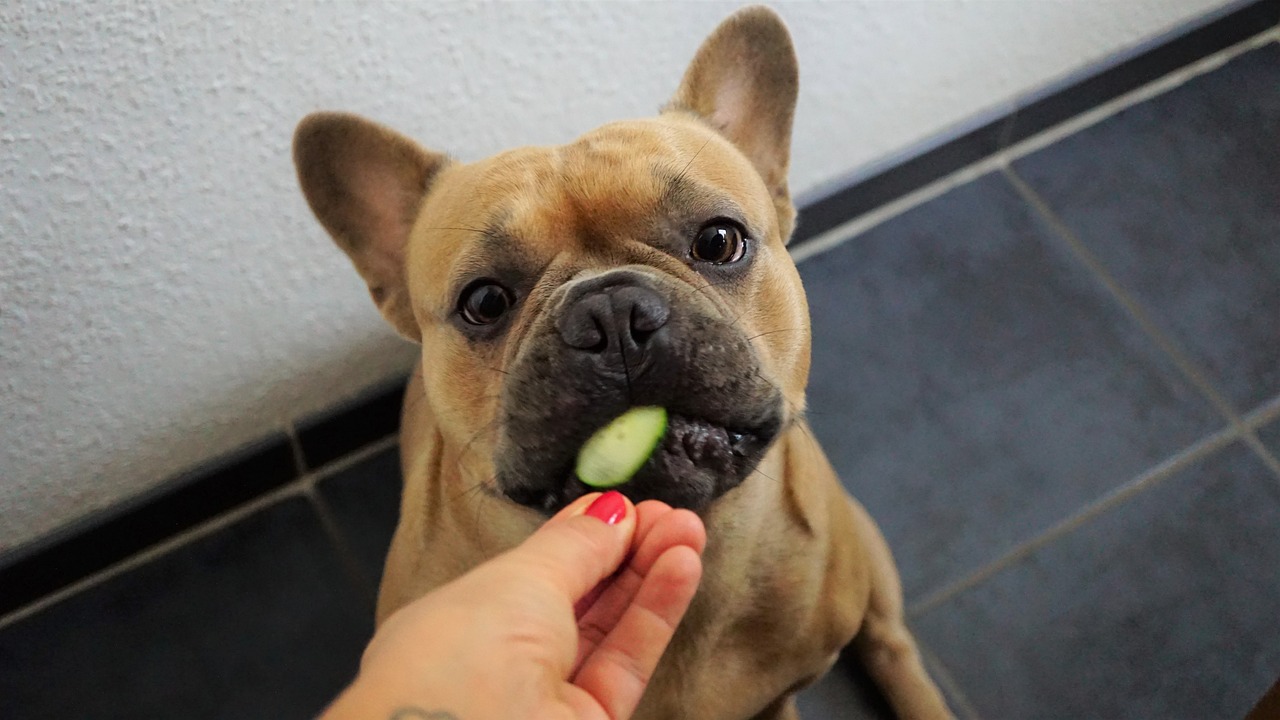
Potential Benefits of a Vegan Diet
Experts have suggested vegan or vegetarian diets could provide several potential health benefits, including:
- Lowered triglycerides and circulating cholesterol, helping in maintaining a healthy weight
- Decreased food intolerance due to allergies
- Reduced risk of food transmitting infectious pathogens and parasites
- Improved coat and skin condition
- Reductions in signs of arthritis, diabetes, and other common health disorders
- Improved gut microbiota and fecal characteristics
Eco-Friendliness
Health factors aside, owners still have plenty of arguments to justify a switch from animal-based to vegan dog food. For eco-conscious consumers, sustainability is a crucial criterion in many of their decisions.
While meat-based diets were once the only choice for cats and dogs, vegan products offer new opportunities to help the planet and the animals living here. According to a 2023 study, dogs account for roughly 7.7% of livestock animal consumption globally (humans account for 91.1%).1
- 6 billion slaughtered land animals
- 260 million hectares of land (an area larger than Saudi Arabia or Mexico)
- 0.59 billion tonnes of greenhouse gas emissions (more than all emissions from South Africa or the U.K.)
- Enough food to feed 449 million people
Drawbacks to a Vegan Diet
The problem with vegetarian and, to a greater extent, vegan diets is they may not meet basic nutritional requirements. As practical as plant-based diets can be, most of the essential nutrients in the proper amounts are easier to attain with animal sources.
At-home meal preparation leaves opportunities to make deficient food, but even commercial vegan dog foods can have unacceptable imbalances with sub-par quantities of certain nutrients and excesses of others.
Dogs can face a higher risk of medical problems from poor diets, including heart disease like dilated cardiomyopathy. Additionally, we should point out that the scientific data surrounding vegan dog food diets is still emerging.
The current studies haven’t looked into the long-term effects of vegan diets on dogs, and many also have limitations due to bias. Alongside the subjectivity of owner-reported data in several studies, pet food companies and pro-vegan organizations often fund this research, leading to ethical questions about their goals.

Can I Feed My Dog a Homemade Vegan Diet?
Preparing homemade vegan meals for a dog without expert help is risky. Most owners cannot manage the details, like supplementing essential amino acids for taurine synthesis or providing adequate amounts of B12.
Even if a meal seems healthy by our standards, that doesn’t mean that it provides the right nutritional balance for our dogs.
How to Feed Your Dog a Vegan Diet
Creating a vegan diet plan for a dog takes time, research, and plenty of help. You should only serve homemade vegan meals with guidance from a veterinary nutritionist. Currently, many experts recommend sticking with a commercial vegan dog food product.
Choosing a pre-made dog-specific formula is the surest way to avoid nutritional deficiencies and imbalances. However, you must still investigate the commercial vegan food. As many products fail to meet the basic requirements, reading food labels is essential in making the best choices.
Compare the information with AAFCO guidelines to identify nutritional gaps. Before making the switch, talk with your vet to ensure your food of choice meets your dog’s needs.

Vet Visits
Since vegan food for dogs is such a new concept and the research is limited, you should plan additional vet visits to monitor your dog’s health after making the change.
Arrange at least two vet checkups annually. If you choose a homemade diet, some recommend considering your dog high-risk and prioritizing regular wellness checks.

Final Thoughts
Can you feed dogs vegan food? Absolutely. Should you make the switch? Well, that’s up to you. Despite the apparent benefits of a vegan diet, the science is still new, and even as evidence emerges supporting the idea, you should take it all with a grain of salt until you see who is backing the research.
For now, stick with what works best: talking to your vet. They understand your pet’s dietary needs and can provide the best guidance for adding vegan meals. While the potential of making the change is intriguing, your dog’s health always comes first.
Featured Image Credit: Daria-Lixovetckay, Shutterstock

